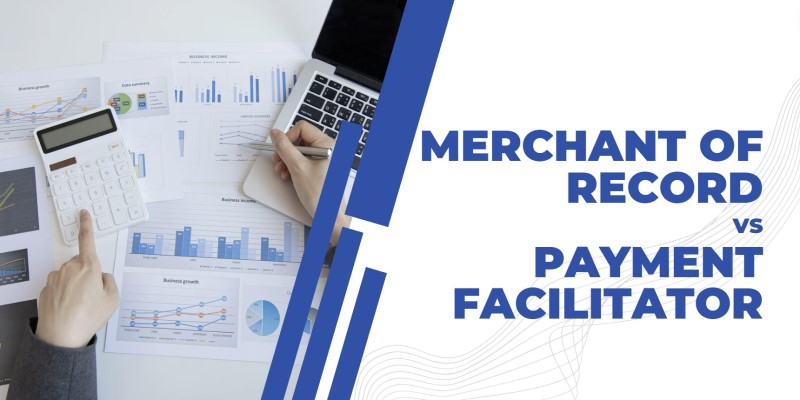The concept of a merchant is multifaceted and dynamic. In a nutshell, a merchant is someone who sells goods or services to make a profit. However, this simplistic definition hardly does justice to the scale of a merchant's responsibilities. Merchants are not just sellers: they are also strategists, analysts, and customer service experts. In this article, we'll explore what a merchant does, what skills they possess, and how you become one.
What is a Merchant
A merchant is a key trade player, responsible for selling goods and services with the ultimate purpose of generating revenue. However, their role involves more than just transactional exchanges.
The main focus of the merchant’s activities is sales and customer satisfaction. Thus, their function encompasses reaching out to existing and potential customers, requesting their feedback on product features, addressing their inquiries and concerns with in-depth product knowledge.
Main Types of Merchants
The term is rather broad and includes various business types. Let’s explore the three main ones:
- Wholesale merchants operate on a larger scale, purchasing products in bulk from a manufacturer and selling them to various retailers at a higher price. Wholesalers typically manage spacious warehouses where they store the goods before distributing them between retailers.
- Retail merchants buy products from wholesalers to then sell them to end customers, profiting from a markup on the price. As retailers deal with customers directly, they normally advertise their products, take care of customer support, deal with consumer inquiries and feedback.
- Ecommerce merchants sell their products exclusively online ― on their own websites and/or marketplaces like eBay or Amazon. This allows them to reach a global audience. Ecommerce merchants are responsible for creating their brand identity, marketing their products, and arranging payment processing. As online financial transactions bear a potential risk for customers, it’s a merchant’s job to guarantee anti-fraud protection and data security.
Online resources mention an additional merchant type ― an affiliate merchant. It describes a business or a person that partners with affiliates (usually content creators) to promote their products or services in exchange for a share in sales. Affiliate merchants rely on these partnerships to expand their reach, raise traffic, and generate new leads. However, it is more often seen as a temporary marketing role rather than a business model.
For more information on the commerce models, read our article Merchant of Record: Radically New Business Model. Radically Better.
Key Responsibilities of a Merchant
Merchants are the backbone of commerce, handling diverse responsibilities crucial to the success of their businesses. Their duties cover various aspects of commerce, reflecting the dynamic nature of this role.
- Business strategy development and followup: Merchants are responsible for declaring and achieving business goals. It’s their duty to make sure that sales and profit objectives are met.
- Inventory: Keeping track of inventory levels and ensuring availability of products for store orders is one of the key tasks. This involves creating and monitoring purchase requests, as well as managing merchandise deliverables.
- Order processing: A merchant’s job is to control the complete order fulfillment process, including communicating with logistics to arrange shipments.
- Financial transactions: Merchants have to ensure the payment processing goes smoothly to provide the best customer experience possible. They arrange cash registers and point of sale (POS) systems, introduce various payment options, including PayPal and bank credit cards.
- Customer service: A positive buying experience depends on how efficient a merchant is at dealing with customer inquiries, resolving issues, responding to customer reviews and feedback.
- Marketing strategy: Merchants often work closely with sales, marketing, and cross-functional teams to develop effective promotional strategies and raise brand awareness.
- Social media: It is a merchant’s team responsibility to manage social media platforms like Facebook or Instagram by posting new content and engaging with the audience.
- Data analysis: Applying analytics tools to track key performance indicators (KPIs) such as sales, conversion rates, and customer behavior is an important part of a merchant’s work routine. Based on the metrics analysis, merchants can make data-driven decisions and adjust their strategies.
 To see the visual overview of ecommerce operations, merchants typically use dashboards
To see the visual overview of ecommerce operations, merchants typically use dashboardsSkills of a Merchant
Merchant’s efficiency largely depends on a combination of their professional skills and personal traits.
Hard Skills
- Prospecting and sales skills: In the initial stage of the sales process, merchants identify new sales opportunities for their businesses. This implies contacting potential purchasers via cold calling, emailing, SMS messaging, and networking to define how the latter might benefit from the merchant’s products and services.
- Product knowledge: To be able to advise a product solution that would match the client’s needs perfectly, merchants should know every detail of any item in the product range in and out.
- Marketing skills: A merchant should be able to apply various marketing strategies and demonstration tactics to showcase the product in the most beneficial way possible and encourage a customer to make a purchasing decision.
- Math: Merchants continuously deal with financial aspects, including retail math for tracking and analytics.
Soft Skills
- Communication: Merchants have to deliver information about their product, respond to inquiries and strengthen ties with clients. Successful communication results in increased sales and enhanced customer loyalty.
- Empathy: Empathic merchants comprehend customer's emotions, background, and problems, and can come up with unique solutions that would match exactly what the customer needs.
- Conflict management: Merchants are required to not only resolve client complaints but also mitigate tension in a team.
- Persistence: It’s vital for a merchant to maintain motivation and aspire to achieve better results in dealing with sales challenges.
- Time management: Having a lot on their plate, merchants have to be clever about their task planning to reach the target KPIs.
Pathway to Becoming a Merchant
Education, skills, and experience are the key components in carving out a career as a merchant.
- Educational background: To become a merchant, one is typically required to have a bachelor’s degree in business, marketing, sales and merchandising, or related fields.
- Experience: Gaining years of experience in retail and ecommerce is important for those aiming for management or ownership roles in this industry.
- Skill development: Enhancing both hard and soft skills helps merchants improve their performance. For example, a merchant could develop active listening by noting down the information while they speak with the client. This helps filter the most important points of the conversation. Also, pitching the product to friends and colleagues as a test helps make presentation and objection handling skills stronger.
Conclusion
A merchant’s job might sound like a one-man band, as it compiles a wide variety of functions, from sales strategy development and inventory management to digital marketing and transaction control. However, if you want to delegate payment processing to a partner, Number X is one of the most reliable and easy-to-deal-with merchants of record. Number X provides professional support in managing complex transactions, operating in multiple tax jurisdictions and accepting online payments in a variety of foreign currencies.
- Merchant of record (MoR): definition8 min read / March 20, 2024

- Merchant of Record vs Payment Facilitator: What Is the Difference6 min read / April 1, 2024

- Merchant of Record vs Seller of Record: What is the difference7 min read / March 11, 2024

- What Is the Merchant Business Model?5 min read / March 20, 2024
